#new Jin Yong wuxia universe
Text
New Jin Yong Wuxia Universe got licensed and it’s gonna be a daddy fest.
Going once…

Going twice…
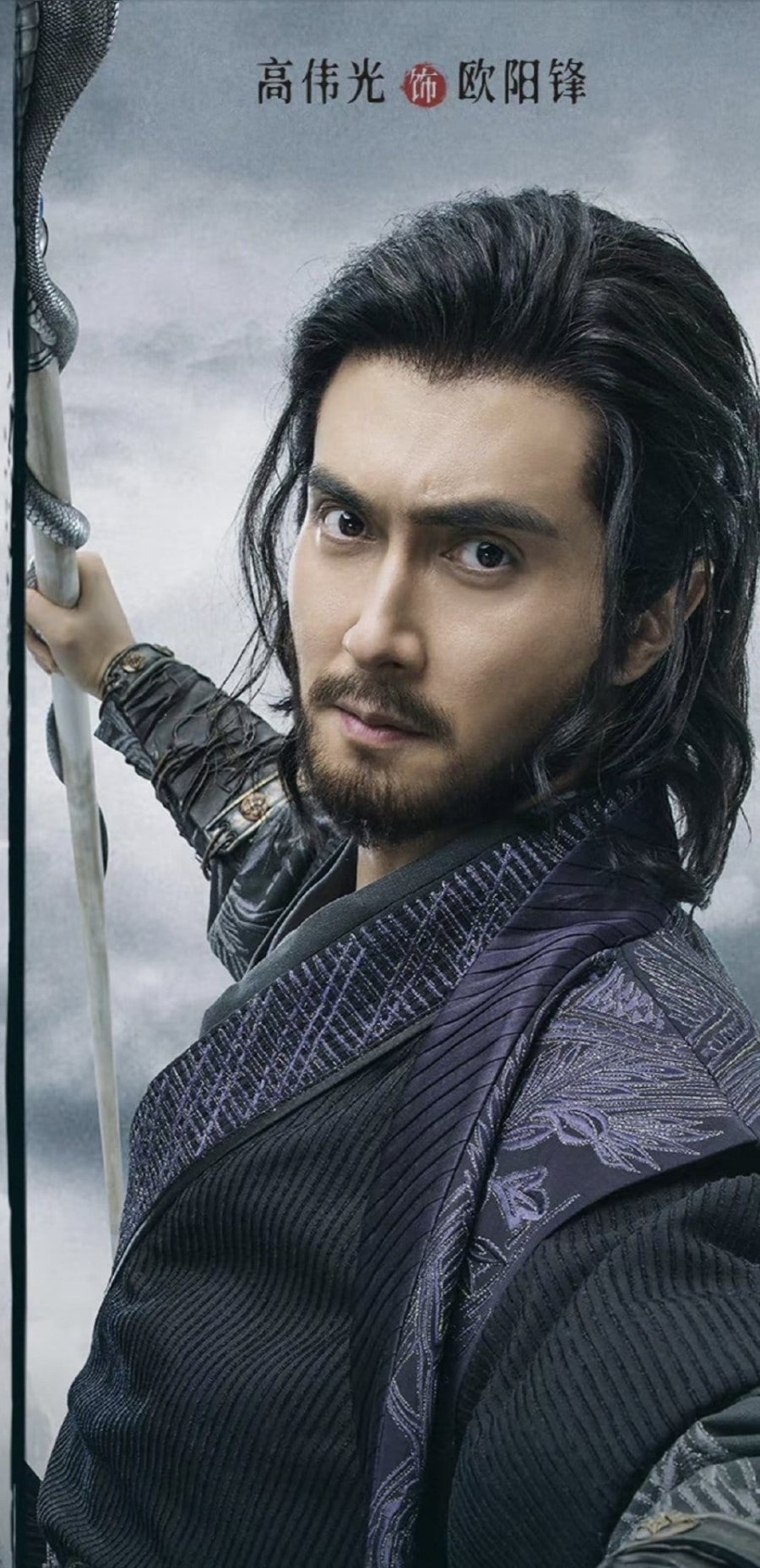
Going thrice….

For those who like your men a bit younger:
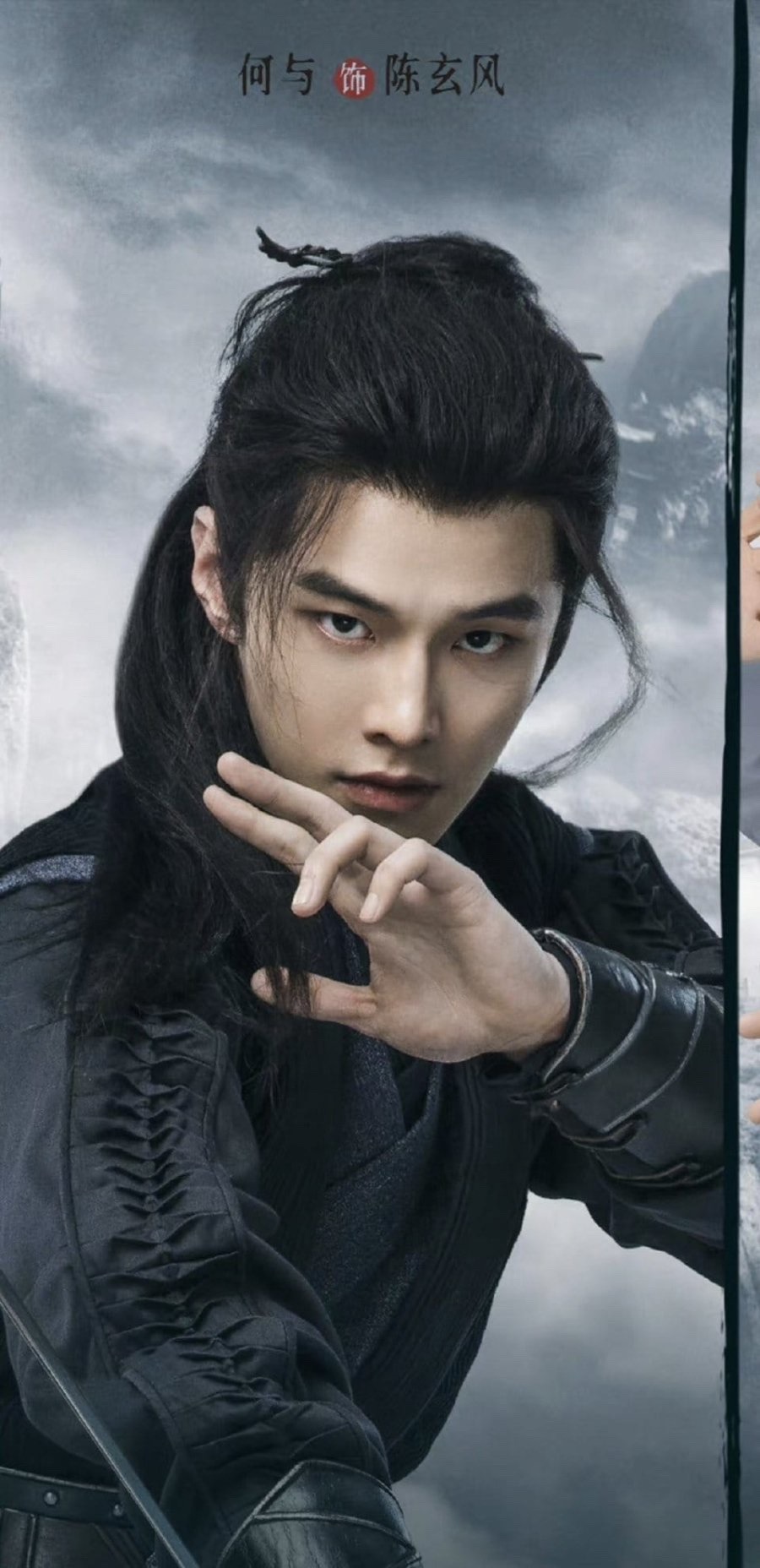
And
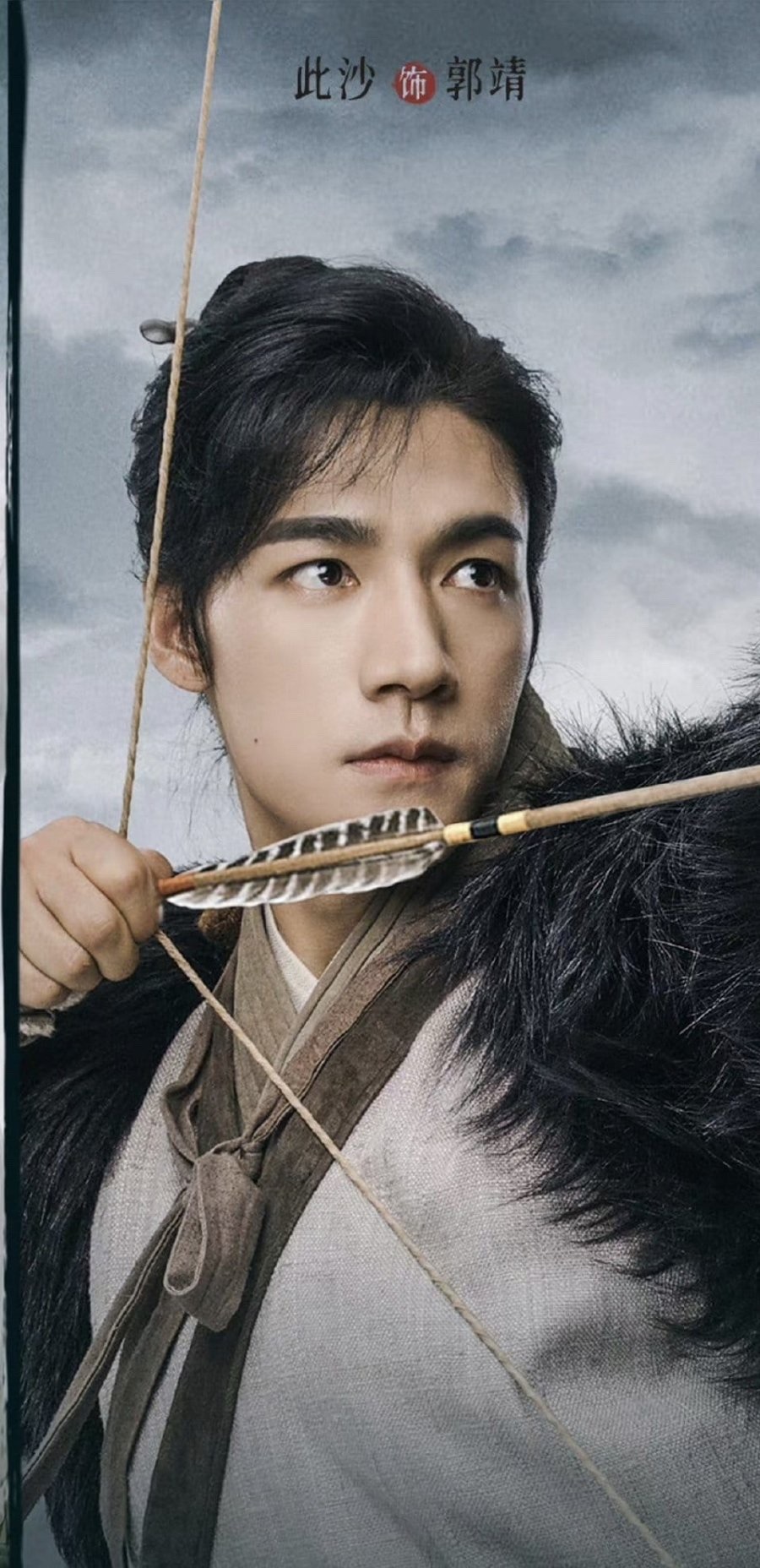
85 notes
·
View notes
Text





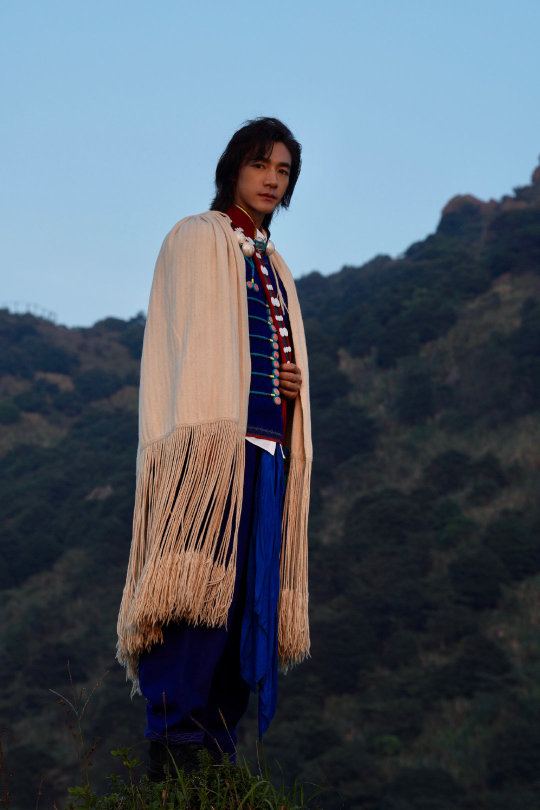
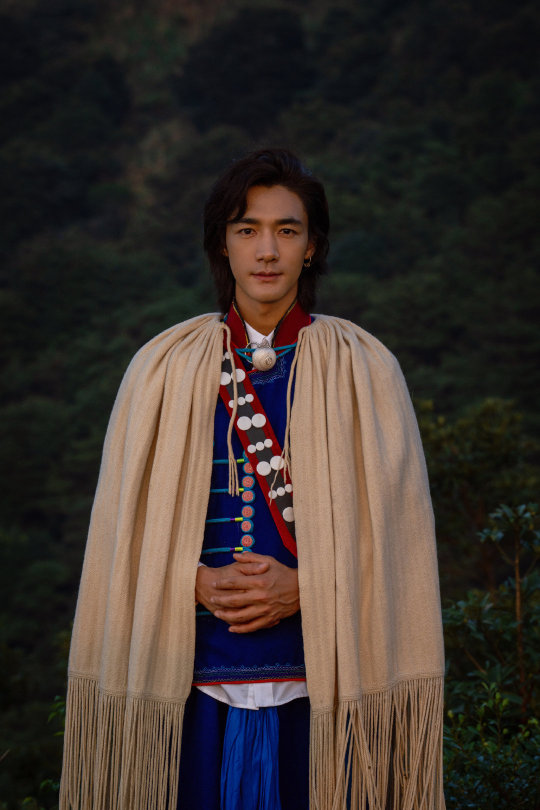
Cî Sha 此沙
Wb update 2023.11.08 (2/2)
He looks so good in Yí 彜 traditional clothing, these are perfect for the Yí People New Year!
#ci sha#jiwu zhesha#chinese actors#creation of the gods#the longest promise#the blue whisper#a date with the future#pledge of allegiance#new jin yong wuxia universe#forever and ever#the legend of muye#cdrama#cmovie#yi people#traditional clothing#yi culture#彝族#such a handsome lad!
11 notes
·
View notes
Text



Meng Ziyi for The Legend of Heroes (New Jin Yong Wuxia Universe) press conference event at 2024 FILMART
3 notes
·
View notes
Text

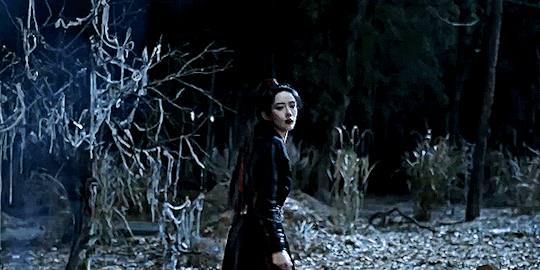

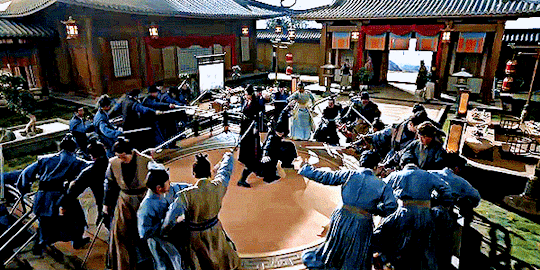

Meng ZiYi and He Yu as Mei ChaoFeng and Chen XuanFeng | New Jin Yong Wuxia Universe: The legend of heroes (2024) | Trailer
#meng ziyi#he yu#Mei ChaoFeng#Chen XuanFeng#The legend of heroes (2024)#already crying#I really should read loch#*mgifs
17 notes
·
View notes
Note
Hello!
"No honestly, they act like the only way to be able to engage with Chinese works is to comprehend it only by what western story arcs and thematics are! Like what the hell, it is audaciously xenophobic and racist to deny that these works do and can be on a separate sphere of what philosophy is in other cultures. And it's just demeaning especially with how forceful they are when they post things that say anything about "being sinful" when Buddhism doesn't even have a concept close to sin! Even what are considered crimes and a rejection of dharma is the concept of a rejection of refusing the natural law of the universe which in itself is not at all comparable to the idea of the guilt usually meant to be associated with sin."
I agreed with this.
So I want to ask, do you know where can I find more about types of Chinese story arcs and thematics in various genres?(not only wuxia/xianxia)
The sin comparisons are ODD. How to explain that WWX's YLLZ actions don't really contradict him being a moral ideal?(everyone says they do...)
I also read some comments about how WWX's story arc felt unsatisfying. For me it was perfectly satisfying,but I don't know how to explain WHY.
Hello anon.
So I want to ask, do you know where can I find more about types of Chinese story arcs and thematics in various genres?(not only wuxia/xianxia)
Mmmm, depends on what sort you may want, for outside of Wuxia/Xianxia that are translated main stream to English or English Diaspora I would recommend the following:
THE WEDDING PARTY BY LIU XINWU: Auntie Xue’s son, Jiyue, is getting married in December of 1982 after the Bei Jing Revolution. Takes place in several different points of view from the groom, bride, chef and party attendants.
TO LIVE BY YU HUA: The spoiled son of a landlord, Xu Fugui, squanders his family’s entire fortune. Xu Fugui lives throughout the years spanning the revolutionary changes and japanese-sino wars of 1930s-1960's.
HERO BORN BY JIN YONG: The very first book out of 12 for Legend of the Condors and from one of the most well known wuxia writers from when the genre took off in the 1950's
I LIVE IN THE SLUMS BY CAN XUE: Collection of short stories from different character perspectives about urban life that approaches chinese life and tradition from what is considered radical than the norm
THE RADIANT EMPEROR DUALOGY BY SHELLEY PARK-CHAN: Historical fantasy of 14th century China, the mandate of heaven is a literal flame granted to the next emperor. Two children, Zhu Chongba and Ouyang become embroiled within the political backdrop of the Ming dynasty and touches on heavy themes of gender identity and sexuality.
As for the idea Wei Wuxian's story arc was unsatisfying, don't know what to say, most xianxia and wuxia protagonists/heroes do get their happy ends unless it is meant to be tragic, but these usually as a genre are not meant to be tragic endings for the leads. It's kind of like expecting Lord of The Rings to be tragic in end for Frodo who was left to his own peace by leaving Middle Earth. Sometimes you'll be personally unhappy with a arc end. This does not mean execution of storytelling was lacking or weak on author part. If it cleanly and thematically reflects that end, it's a personal problem unfortunately and not a work or genre for you perhaps.
These are not written with the concept of sin or the traditional idea of redemption exposed to within western texts. Doaist Buddhism is not on the same philosophical standing as Christian redemption or tellings. Samsara are able to be a complete new start, Sin does not follow in after life or new life within samsara cycles, the point is that you can always remove the self from the suffering of human vice and obsession to ascend above what humanity is.
25 notes
·
View notes
Text
Current/Upcoming projects
Vengo Gao (Gao Weiguang)
The Shadow (TBA)
New Jin Yong Wuxia Universe (TBA)
Love and Passion (TBA) 2024
Above the Rivers (03/11) 2024
Love and Sword (TBA) 2024
Overseas Rescue (TBA)
The Prisoner of Beauty (2024) TBA
Dilraba Dilmurat (Dilireba)
Zhe Bian Feng Jing (TBA)
Sword Rose (TBA)
利剑玫瑰 (TBA 2024)
#dilraba dilmurat#dilreba#vengo gao#gao weiguang#the shdaow#the outsider#the legend of anle#prosecution elite
3 notes
·
View notes
Text
wuxia/xianxia: a loose and somewhat second-hand introduction to the genre, pt1
Sorry for the unconventional q, but i keep seeing Grandmaster of Demonic Cultivation everywhere and I kinda want to get into it but a) don't know where to start (web series? live action adaptation?? wait how many are there!) and b) i don't really "get" wuxia / xianxia, that sorta stuff, i find it really hard to cross that cultural barrier and chinese mentality seems very alien. (it's not that i have no experience w different mentalities but chinese in particular is v hard to grasp w/o sources).
So if you have the time and patience, I'd love to hear a summary of it (like, a coherent summary bc all i get on the wikis is a shower of names and concepts that don't make sense to me) and perhaps some "intro for dummies" abt the relevant parts of chinese history and mentality tied to it? not just the cultivation / buddhist part but also re: familial relationships, philosophy and all that. (v brief and low effort of course) Thank you and sorry for bothering you!
("brief and low effort" referring to what I'm asking from you, not to what I need for me - as in i asked for it so i'm more than ready for a complicated essay, but you can write with as much detail as you like, I don't want to ask for some sort of comprehensive tome)
Okay first, you do realize that if you want “brief and low” for anything, you’re asking the wrong person? I was a philosophy major. brief got drilled out of me a long time ago.
Second... well, explaining what makes The Untamed / Grandmaster of Demonic Cultivation (mdzs for short, from the chinese title, Mo Dao Zu Shi) such a standout story does require understanding some of the wuxia conventions it subverts -- as well as some that it plays straight (so to speak) very, very well.
I figure the best approach (again, sadly not brief) is to first get a handle on the genre of wuxia. Gonna break this post into two, so you’re not reading in a single three-hour stretch or something. I’ll do a follow-up about mdzs, to hopefully make it a bit more accessible for you.
before I do that, let me first say: I didn’t grow up with this genre, so there’s going to be parts that I may miscast unintentionally. for an insider’s view, my go-to voices are @guzhuangheaven, @atthewaterside, @dramatic-gwynne, @the50-person and @drunkensword. if any of them are reading this and can point to more/other/better voices, please do.
I have three analogies -- like cultural doorways -- and like all analogies, they break down when you get into the finer details. In the broad strokes, though, they mostly work, and if nothing else, hopefully they’ll demonstrate that wuxia may be a chinese-specific version, but part of a storytelling tradition that’s nearly universal.
The three doorways are: the american wild west, the samurai era, and the british arthurian romances. And, in a tangential way, the regency period in the romance genre.
--- --- --- --- --- --- --- --- --- --- --- ---
The term ‘wuxia’ can be translated several ways, but I prefer ‘martial chivalry’. Most wuxia takes place in the jianghu, a harder term to unpack. Generally, though, ‘the jianghu’ has connotations not all that different from what americans mean when they reference the wild west.
More of a concept than a physical place, the jianghu (like the ‘wild’ west) exists beyond the reach of the law and/or civilization. It’s occupied by a diverse cast of farmers, merchants, beggars, and so on, but also by outlaws, gangs, hermits, pretty much all those who don’t like the suffocating nature of the civilized world, for whatever reason. It’s not a lawless place (except to outsiders); it does have laws, but those are only unto itself.
So, jianghu is a world to itself, for the most part -- which also makes it kind of timeless. Tang dynasty, Song dynasty, Ming dynasty, it could be any of them and all of them and none of them. Just as the heyday of the cowboys and the cattle drives was barely a decade long, a culture’s romanticized history stretches into lifetimes that exist separate from any date you could pin down on a calendar.
The average wuxia protagonist would fit in reasonably well as knight errants in an arthurian romance, with one important detail in difference: they’re rarely aristocrats. Wuxia protagonists are just as likely (if not more so) to be lower-born, whether the child of farmers, or servants, some common caste.
This is where wuxia diverges from the british and japanese traditions, which have a bit more noblesse oblige going on (knights and samurai both being upper-class types). Even ‘aristocratic’ characters tend to be so only within the jianghu -- sort of like the way a territory’s elected leader in the wild west would’ve had no pull in Washington, given they weren’t from a fully-recognized state.
Wuxia does often have politics, between competing sects (think schools of learning), but that political infighting is independent of the capital’s rules or wishes. A lot of stories -- in the rare cases the topic even comes up -- tends to speak of ‘the capital’ in disparaging terms.
That’s not to say wuxia is all about the flat social systems (it’s definitely not), but most commonly a rank implies some level of competence/study. The title of sect leader isn’t granted, it's earned. Children inherit, but it’s also a common storyline to have an heir with no skills (who then goes through all the trials and tribulations to finally level up and earn that position in turn).
What makes wuxia hard to grasp is its vernacular: the conventions that form the backbone that make something recognizably ‘wuxia’ and not just ‘historical drama set on a frontier in a loosely-defined time period’.
Frex: in a Wild West story, convention is two gunfighters at opposite ends of the street, and at least one of them is wearing a holster tied to his leg with string in a way that no real gunfighter wore, ever, but Hollywood came up with the idea and now it’s a permanent part of our imagination. In the arthurian romances, convention is carrying the token of one’s lady love (a distant, untouchable figure who rarely appears on-page), or meeting the unnamed knight in black on the jousting field. Convention are the samurai who’ll die for their lord’s honor, always touchy and prickly at the first sign of disrespect.
These are things granted the most remarkable gravity, that to an outsider might seem ridiculous. (Why is there always tumbleweed?)
Now, wuxia is the latest evolution in a long-lived literary tradition (and by ‘long’ I mean like 2000+ years) -- but like any living tradition, each subsequent generation reinvents it for their time. Part of that reinvention comes from particularly influential writers, who put their own spin on things, and their interpretation becomes the next generation’s standard for the genre -- “of course wuxia must have X” or “a protagonist never does Y”. (Like how Tolkien almost single-handedly changed western concepts of elves, in fiction.)
And here’s where I explain what regency romance has to do with it. Another short-lived period, in real history, but along came Georgette Heyer, who took bits and pieces of actual research, blended them with her reactionary politics, exaggerating some things and ignoring other things completely. The result is a time-that-never-was, but she cast (and still casts) a shadow so vast that I’ve seen multiple romance writers complain that readers will see a footnoted-and-researched version as wrong, if it contradicts one of Heyer’s made-up conventions.
Modern wuxia has its own Heyer-sized influencers -- like Jin Yong (the Condor trilogy, Demi-Gods and Semi-Devils), Wen Rui'an (The Four), Gu Long (The Legend of Flying Daggers, The Proud Twins), to name a few of the biggest. If you have a chance or are inclined, the big names get remade on a pretty regular basis, and catching one will at least let you see some ur-tropes in action.
But it also means that you can’t really extrapolate, in the sense of saying, “in wuxia, people do X, ergo, X is also a factor in Chinese culture.” It’s like... take any western made in the 50s, and the vernacular is simple. The bad guys wear black hats, the good guys wear white hats, the prostitutes wear bright-colored dresses with frills and the good women wear subdued colors buttoned up to their neck. It told an audience exactly what character filled what role, but that’d tell you zero about real people you might meet in Nebraska or Utah, let alone New York City.
--- --- --- --- --- --- --- --- --- --- --- ---
Almost forgot: xianxia is basically wuxia but with ‘immortal heroes’ -- so there’s gods, divine influences, non-human beings as characters (main or NPC), etc. (Btw, by ‘immortal’ I mean exactly that, like this character is six hundred years old, that one’s a thousand years old, etc.) You can think of xianxia as wuxia, but amped way up on the mystical scale.
Xianxia will sometimes take place on earth (jianghu) but sometimes in the celestial realm (heaven). Or a mix of both, like stories where a character falls (or is banished, or defects) from heaven and has to go through various trials and tribulations as a mortal human in order to regain a power, rise in rank, fall in love, or whatever their goal is.
A number of wuxia stories are driven by some sort of mcguffin, but in xianxia, the mcguffin is more likely to be a powerful spiritual weapon. But I can also think of a number of wuxia in which the mcguffin would fit right in, in xianxia (some near-mystical thing with significant positive, or negative, power independent of the wielder, which often amplifies or boosts the wielder to an inhuman degree, etc).
Thing is, the mcguffin being divine/infernal supernatural isn’t enough alone to make the story xianxia. I’m pretty sure you need non-human or super-human immortals and/or creatures to be considered in the xianxia genre.
part two
570 notes
·
View notes
Text
tagged by @lovecontact to answer 30 questions and tag some people :D
1. name/nickname: eleanor! no one calls me anything else except maybe my chinese name
2. gender: im a girl in a way that is almost too girlish almost as if... as if im repressing something
3. star sign: pisces but please look beyond that to see my better placements like... scorpio moon and aquarius mercury
4. height: 4'10 (i grew an inch in hs okay i was 4′9 in elementary)
5. time: 12:24 pm
6. birthday: march third babeyyyy o three o three
7. favorite bands/groups: i dont listen to a lot of groups but um. the young heretics, the amazing devil, and dreamcatcher
8. favorite solo artist: i don’t really listen by artist and i dont have a favorite but i am enjoying father koi recently
9. song stuck in my head: i am listening to hands down by the greeting committee as i am answering this question
10. last movie: knowing dir alex proyas
11. last show: sweet home... i just finished it yesterday i am devastated. eunyoo screaming oppa at the end.... im crying
12: when did i create this blog: uhhh. ive been on tumblr since 2015 i think but i remade to here in 2018
13. what do i post: wake up honey new art dropped
14. last thing googled: the fool tarot (i was taking a uquiz)
15. other blogs: @matsukkawa and @kavinskky
16. do i get asks: i am a silent aesthetic blog just by nature of im extremely private so no <3
17. why did i choose this url: whore aspirations
18. following: less than 400
19. followers: a certain number
20. average hours of sleep: eight recently! i’ve been really good about sleeping early this past week
21. lucky number: my fave number 2357 but not two thousand three hundred etc. two three five seven. and only in that order and not separately
22. instruments: i certainly do own a guitar (my boyfriend was very distraught seeing it considering i havent cleaned it a single time since i got it seven years ago) mostly i sing
23. what am i wearing: sweatpants and a sweater (i just woke up and had class okay)
24: dream job: like as in money is not an issue and i am guaranteed success? full time actor or poet
25: dream trip: taiwan + japan + back to taiwan
26. favorite food: ummmmmm. taiwanese cold noodles?
27. nationality: no like where are you from from. taiwan babeyyy
28. favorite song: i have many but uh. you are the apple by lady lamb
29. last book read: a bond undone by jin yong trans. gigi chang
30. three fictional universes you’d like to live in: i am quite content with the universe i am in but put me in any wuxia world i like the clothes
tagging: i forgot who i tagged the last few games so hi if i am tagging you an excessive amount @honorata @sheherazade @lovlettres @tierras @seijohs @stormclloud @airsignz @irenes @dogsongs @the2headedcalf @indnoesia
the original game is to tag 20 people. that’s a lot. this is close enough
12 notes
·
View notes
Text
I’m only a few weeks out from finishing my second year of university and I must say, I cannot wait for final projects and exams to be over and done with. A few more weeks and I’ll have nothing but weeks of sunshine and books.
I don’t usually do TBRs, since I’m more of a ‘mood’ reader than a ‘I-must-read-new-releases-as-they-come-out’ reader. This year, however, I’ve had such a disappointing reading year that there are stacks of books that I want to get to over the summer holidays.
So, without any further ado, here is my end-of-year/summer holiday/I’m so over university TBR (in no particular order):
Sense and Sensibility by Jane Austen and Wuthering Heights by Emily Brontë
I’m including these books together on this list since I was supposed to have read them for my Romantic and Victorian Literature classes.
Emphasis on *supposed to*. I didn’t.
But I did start, so of course I have to finish.
The only novel of Jane Austen’s that I’ve read is Pride and Prejudice (my favourite classic!) and I’ve never read anything by the Brontës, so I’ll be glad to check these two classics off my list.
The Bear & The Serpent and The Hyena & The Hawk by Adrian Tchaikovsky.
(I adore these covers – stunning – by Neil Lang)
Another double-entry. I read the first novel in Tchaikovsky’s Echoes of the Fall series only a few weeks ago and I adored it, so I’m eager to dive into the next two books and find out what happens next.
The first book ended in such a way that promises big things and an expanding of the incredible world Tchaikovsky has created.
I also have a habit of reading the first book in a series and then taking far too long to get to the next books, especially if the first book emotionally decimated me – as The Tiger & The Wolf did. So I need to get back on the horse and read on.
A Hero Born by Jin Yong
(I love this cover too! So simple and yet so enticing – by Michael Salu)
Yong’s Legends of the Condor Heroes series has been on my radar for quite a long time and these summer holidays seem like the perfect time to explore 13th century China.
These books are somewhat of an enigma to me; I don’t really know what they’re about. But I’d like to leave it that way and allow Jin’s story unfold before me.
I love wuxia films but have never read a wuxia novel, so I’m excited to see how the experience compares. I’m also looking forward to reading fantasy set in a non-Western setting.
(*As far as I understand it, Legends of the Condor Heroes are historical fantasy. I may be wrong).
Well, there you have it! My end-of-year TBR. I really hope I get around to more books than the five listed here – there is also the very real possibility that I won’t read any of these books and will instead read completely different ones.
(If you saw the real state of my ‘TBR shelf’, you’d be horrified. As I am. So many books, so little time. Or, if I may, I have TOO MANY TOMES. Geddit? Did’ya geddit? I’ll see myself out).
It's time for my "End of Year TBR"! I can't wait for summer holidays so I can do nothing but read... I’m only a few weeks out from finishing my second year of university and I must say, I cannot wait for final projects and exams to be over and done with.
#adrian tchaikovsky#book cover design#emily bronte#fiction#jane austen#jin yong#michael salu#neil lang#tbr
2 notes
·
View notes
Text
Jet ‘s Chang Mo-Kei’s kung fu has been struck by the Jinx Palm, blocking his chi, destroying his ability to perform kung fu and causing him to need constant infusions of chi from Taoist priest Chang San-Fung (Sammo Hung). But Chang can only be cured by a massive infusion of yang energy, which he receives after falling off a cliff and meets a hermit chained to a bolder who teaches him the Great Solar Stance to get back at the hermit’s own enemies. Afterwards, Chang is super-skilled and learns kung fu with the ease of Jet Li. Then things get crazy with everybody flying and chi all over the place, a Mongol princess, the King of Green Bat, all the martial arts schools fighting each other, hundreds of people running around with flags, the not-evil Evil Cult, Hermit Chained to a Boulder Fist. And then, as it gets to the big end fight, it just stops, teasing a sequel that was never made. And I was filled with wonder.
Wong Jing’s Kung Fu Cult Master (1993) is the first time I know that I watched something adapted from a Louis Cha story. It is based on the third novel in Cha’s Condor Trilogy, Heaven Sword and Dragon Sabre. I probably saw it at the old Golden Classics Cinema in Toronto. It was when I was watching all the Jet Li movies. This one was memorable and, having no familiarity with the source material, I found it difficult to follow. That didn’t stop me from pretending later I had been struck by a Jinx Palm. (What do you expect me to do when you give me charcoal powder toothpaste, people?). I was filled with wonder.
Since then I have made sense of what I saw through translated comics adaptations, in particular Ma Wing-Shing’s Heaven Sword and Dragon Sabre (Comic One, 2002), the novel Kung Fu Cult Master adapts. It seems fitting that I would first read Louis Cha via the comics of Ma Shing-Wing and Tony Wong’s The Legendary Couple (ComicOne, 2002), an adaptation of Cha’s Return of the Condor Heroes. It parallels how I first encountered him in a way that I remember in Kung Fu Cult Master, rather than Chor Yuen’s elegant Heaven Sword and Dragon Sabre (1978) or Wong Kar-Wai’s deconstruction and sorta prequel, Ashes of Time (Redux or not) (1993; 2008).
Behold this wonder! Gold Lion and Green Bat in Kung Fu Cult Master
Slightly more elegant Green Bat in Chor Yuen’s 1978 Heaven Sword and Dragon Sabre
The comics and the 1983 television adaptations allowed me to become familiar with Cha and these stories. They allowed me start to understand stories that assumed familiarity with the story, whether Kung Fu Cult Master, Ashes of Time, or Jeffrey Lau’s Lunar New Year parody of The Legend of Condor Heroes, The Eagle Shooting Heroes (1993), shot with the same cast and at the same time as Ashes of Time. Please note Tony Leung Chiu-Wai in each film.
As the Blind Swordsmani in Ashes of Time
Suffering from a painful allergic reaction as Duan Zhixing in Eagle Shooting Heroes
In the early 1990s, Louis Cha was what Ip Man movies are now.
I watched some of the 2000s and 2010s tv adaptations in non-subtitled form, but by then I could understand who and what I was seeing. In fact, I was pleased when I could actually get the joke that the landlord and landlady in Stephen Chow’s Kung Fu Hustle (2006) were the ill-fated lovers of Return of the Condor Heroes, Yang Guo and Xiaolongnü played by Andy Lau and Idy Chan in the 1983 tv adaptation I borrowed from a good friend and have since gotten for myself.
Andy Lau as Yang Guo and Idy Chan as Xiaolongnu in 1983
Carman Lee as Xiaolongnu, Lois Koo as Yang Guo and giant condor friend in 1995.
Yuen Qiu as Xiaolongnu and Yuen Wah as Yang Guo in Kung Fu Hustle. Ha, I get the joke now! I can laugh!
And it helped a lot watching those shows when I read Tony Wong’s Legendary Couple, because the translations of the names were so different, but I recognized a disreputable Taoist when I saw him.* Sometimes the Wudang Clan is something to mess with.
Cha’s most adapted–and possibly referenced–books are the Condor Trilogy: Legend of Condor Heroes; Return of the Condor Heroes; and, Heaven Sword and Dragon Sabre. They are sequels, but follow family and kung fu school lines more than the adventures of any one protagonist through three novels. And luckily for us, McLehose Press is planning on translated the whole trilogy into English. The first volume, Legends of the Condor Heroes: A Hero Born, translanted by Anna Holmwood, is now available. No English speakers will ever need to struggle like I did again. The kung fu fantasy works of Louis Cha will be available to us all–or at least some of them.
Dr. Louis Cha Leung-yung was born in 1924 in Haining, Jiaxing, China and lives in Hong Kong. That’s right, Cha is still going at 94. He has worked as an editor editor and journalist, but it was his wuxia novels, written between 1955 and 1972 under the pseudonym “Jin Yong,” (Kam Yung in Cantonese) that brought him a tremendous success. According to Holmwood, “sales of his books worldwide stand at 300 million, and if bootleg copies are taken into consideration, that figure rises to a staggering one billion.”
Cha got his start as a copy editor in 1947 at Shanghai’s Ta Kung Po newspaper. He became deputy editor of Hong Kong’s Hsin Wan Po. He left journalism briefly to work as as screenwriter for Great Wall Movie Enterprises, Ltd. In 1959, Cha co-founded Hong Kong’s Ming Pao newspaper. And it was primarily Ming Pao that serialized his fifteen wuxia stories. His first was The Romance Of The Book And The Sword (1955). His last was Sword of the Yue Maiden. He retired from writing fiction in 1972 and he’s been updating and revising the work ever since. There was a time in the 1970s when his books were simultaneously banned in both the Mainland–because it was seen as satirizing and criticizing the Chinese government–and in Taiwan–because it was seen as somehow pro-Communist, anti-Kuomintang and critical of Taiwan’s one-party rule.In 1995, he retired from his position as editor-in-chief of Ming Pao. Cha has been active in Hong Kong politics, helping draft the Hong Kong Basic Law and then working on the Preparatory Committee in advance of the handover of Hong Kong from the United Kingdom to China in 1997. And he’s spent much of the new millennium pursuing higher education. He studied at St. John’s College in Cambridge, receiving a doctorate in Chinese history in 2010. And the South China Morning Post reports that Cha (might have) received another doctorate, this one in Chinese literature from Peking University in 2013. Of course, this doesn’t even begin to cover his probable knowledge of martial arts like the Nine Yin Manual and 18 Dragon Palm. One assumes Dr. Cha is cultured in all things.
Dr. Louis Cha via the South China Morning Post
Whenever I think of Louis Cha, I think of Tony Leung Chiu-wai in Wong Kar-Wai’s In The Mood For Love (2000). Sure, there is lovely music and melancholy love with the sartorially unstoppable Maggie Cheung, but it is easy to overlook that not only is Tony Leung a writer, he is a writer of wuxia novels. I’m not saying that Wong made a movie about Louis Cha’s love life, which I hope is less depressing, but I think Cha and writers like Gu Long and Wang Dulu were in the background. Especially after Ashes Of Time. And Ashes of Time is a lot easier to follow if you realize it is a deconstruction of the Condor Trilogy. It relies on the same kind of familiarity that Peter Greenaway relies on people having with The Tempest in watching Prospero’s Books (1991). I love that the touchstones for both extremely artsy-fartsy directors are different. I love that Wong works with a serialized wuxia writer. It would be like Greenaway deconstructing Tolkien or Robert E. Howard**—but all wrapped up together. The high and low brow have a common enemy. God save us from the middle brow.
And Cha is being compared to Tolkien and George R. R. Martin in many of the reviews of A Hero Born. In fact, right on the cover a blurb from the Irish Times reads, “A Chinese Lord of the Rings.” And I get it. It’s short hand. People need some kind of reference before they’ll pick up the book. That’s fine. There will be plenty of time for pedantry later. Once people have read the book and become Cha fans, they can start arguing on the internet, “Hey, Louis Cha is a much more prolific author than Tolkien ever was with a more profound influence on Chinese language literature and readers.”
I would probably make those comparisons myself if my first encounter with Cha’s characters and stories hadn’t been Kung Fu Cult Master. Then again, Kung Fu Cult Master is the first half of a projected two-art adaptation but, like Ralph Bakshi’s animated Lord of the Rings, there was never a part two. So. Yeah. It’s just that I don’t know what other comparison to make.
In an interview with South China Morning Post, Anna Holmwood describes Legends of the Condor Heroes: A Hero Born as “China’s Walter Scott mixed with The Lord of the Rings fantasy things. That’s exactly what it is.” For their part, the SCMP copy editor chose a title comparing the trilogy with George R. R. Martin’s A Song of Ice And Fire. A Hero Born is wuxia at its best. It’s 1205 CE and the Jin are encroaching on the Song Empire. The emperor is unworthy and the people are oppressed. Itinerant heroes try to make things right. Two of them, Skyfury Guo and Ironheart Yang encounter a grumpy Taoist priest Chu Qiuji*** who, while heroic, is a jerk. He avidly demonstrates why the Wu Tang Clan is nothing to mess with. Guo and Yang become involved in a fight with soldiers and must flee. Their children, Guo Jing and Yang Kang grow up on different sides of the conflict. Plus, there’s Genghis Khan! And a secret beggar sect! And one of my favorite characters keeps his wife’s body in a frozen cave! I wish I could do better, but I’ll just suggest you read the book, read the comics, watch the tv shows and movies.
Oh, yeah, and there’s plenty of fantastic kung fu move and school names and action. Comics, while also working in a static medium, don’t face the same kinds of challenges a novel does in depicting action. Comics creator Ma Wing-Shing in particular captures the force of the martial arts masters moves. I am particularly fond of his chi lines. But Holmwood has some interesting thoughts on translating the names of the various stances, fists and swords as well as conveying the choreography of a fight sans images.
“The name [of these moves] is very evocative and it’s part of the creating of the world, but what really matters to readers is can they follow who is doing what, what the actions are, who is hitting whom, and how they are hitting them,” she said. “When you are translating, you have to read on such a careful and deep level. You are constantly asking yourself: is the hand going there? Is it going up or down? How is this move working? That’s the most challenging part – is to be able to express what the actions are in a way that is going to be vivid on the page and people can clearly understand and follow what’s happening.”
“You can shorten sentences to make the action move, and use some short punchy verbs that make the actions very fast,” she said. “When you want to draw attention to the moment for dramatic effect, you add more details, slow it down, and make the sentence a big longer.”
And I have to say it works. Right from the start of A Hero Born, I easily imagine Chu Qiuji’s unnecessarily brutal fights with the heroes he mistakes for scoundrels. Does it help that I’ve read Ma Wing-Shing, Tony Wong and seen film and television adaptations of Cha’s stories? Maybe. But Holmwood does a good job of taking readers into the martial world. I can’t wait for the next translated volume of Legend of Condor Heroes finally presented if not in its original serial format, something close. McLehose is planning three more volumes of Legend of Condor Heroes before starting on Return of the Condor Heroes–making this a burly “trilogy.”
Ma Wing-Shing demonstrates how to draw punching.
I wrote more about Ma Wing-Shing and his adaptation of Hero here.
*This Taoist is no Chang San-Fung / Zhang Sanfang.
***Or finally making my long hoped for film, Peter Greenaway’s Batman and Robin.
*There is one disreputable Taoist and then there is Chu Qiuji, who is extremely reputable, but incredibly judgmental and harsh. I am afraid to think of what Chu Qiuji might be without Taoism.
~~~
Cured of the Jinx Palm, Carol Borden has retired to Peach Blossom Island to study Nine Yin White Bone Claw.
The Many Forms of Louis Cha’s Condor Heroes Jet 's Chang Mo-Kei's kung fu has been struck by the Jinx Palm, blocking his chi, destroying his ability to perform kung fu and causing him to need constant infusions of chi from Taoist priest…
#1920s#1930s#1940s#1950s#1960s#1970s#1980s#1990s#2000s#2010s#A Hero Born#adaptations#Andy Lau#Anna Holmwood#Ashes of Time#biography#Carman Lee#China#comics history#Eagle Shooting Heroes#fantasy#fantasy history#film history#Heaven Sword and Dragon Sabre#Hong Kong#Idy Chan#Jeffrey Lau#Jin Yong#Kung Fu Cult Master#Kung Fu Hustle
1 note
·
View note
Text
Tencent press conference also released a bunch of posters and here are some that caught my eye for a variety of reasons.

As a poster it’s just heads but I am here for the chaos that will ensue from mashing a bunch of Jin Yong novels together in New Jin Yong Wuxia Universe. Is it going to be a disaster? Probably. Am I here for it? With bells on. PS hi Zhou Yi Wei and Vengo Gao and Peter Ho, at least no matter the content of this, my eyeballs will feast mmmmm

I don’t do moderns and thus have no interest in The Snowstorm of Love despite my fondness for both Wu Lei and Zhao Yinmai, but I had to post the poster because good god that poster is heinous and all I can think of is frostbite.

Zhuo Zhuo Feng Liu poster is a bit generic but in exactly the way I like - men in armor (with handsome horse in background), lady in court robes, forearm holding and staring, classics are classics. And it’s not swimming in pastels, already a win.

Have you guys ever been big into 1970s fantasy with those delightfully trippy covers? Because this is the vibe the poster is giving me and I love it. This is where the casting carousel of The Guide to Capturing the Black Lotus stops and we get Esther Yu and Ding Yuxi apparently and NGL I am loving that casting and that pairing for those characters.

The Wonderland of Love poster is as good as its trailer and its trailer was by far my favorite out of the entire tencent conference.
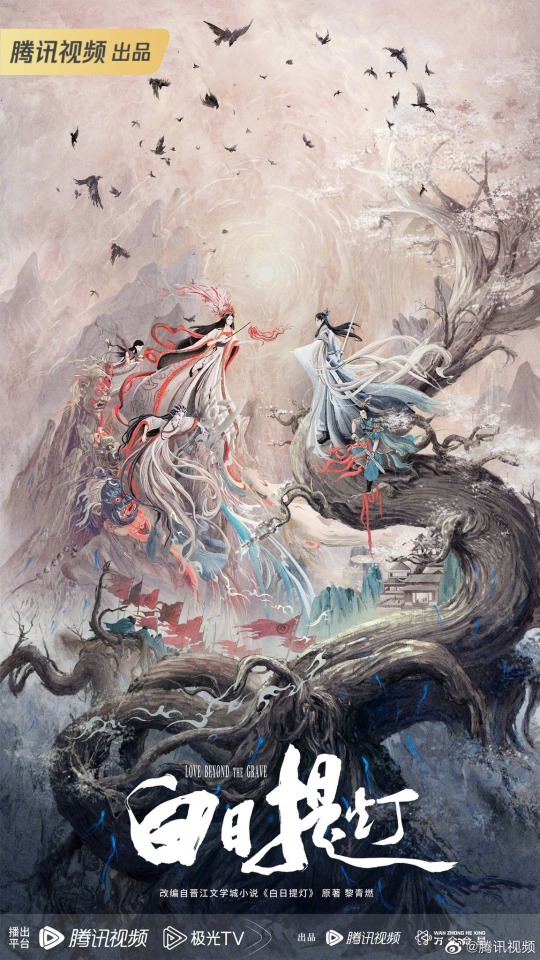
Liu Shishi’s Fox Spirit Matchmaker @aceinthetrap let me know is not FSM it’s a different drama (apparently called Love Beyond the Grave? Why am I thinking zombies and romantic poets in cravats?) looks beyond gorgeous. This is how you do it, people!

Tho if you got to go for cliches, you could do worse than Everlasting Longing which continues to push the sexy barbarian chief thing like everything depends on it, which I suppose for the drama it does. Luckily my main emoji on seeing it is 😍😍😍😍

God damn you! Hands off 1000 Miles of Bright Moonlight. I do not want an adaptation of this because they are going to ruin it utterly. They already ruined my n1 het web novel with the travesty that was the adaptation of Dreamer in the Spring Boudoir and now time to go for my second most favorite? Between censorship regulations and cdramas’ own narrative tendencies in recent years, they are just gonna do a terrible job, leave it alone pls.
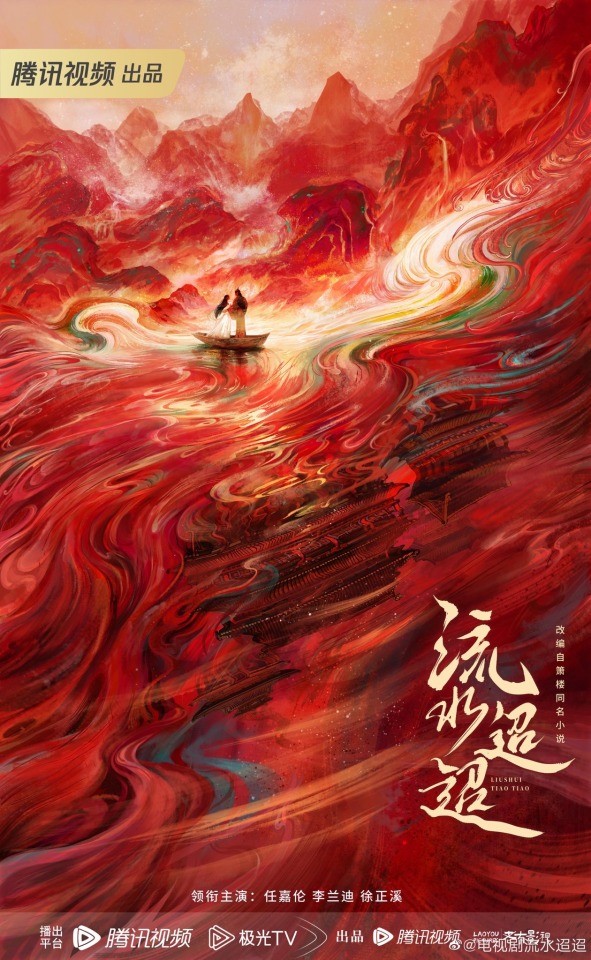
I like this poster for Liu Shui Tiao Tiao because it’s not like anything else and is not drowning in pastels; it’s probably my favorite poster out of the entire conference.
Thanks to my dealer @aysekira who linked me to a bunch of these and, as always, a fun game of “how many of these will actually air? And in some reasonable timeframe?” starts now. Plus don’t ever air, 1000 Miles of Bright Moonlight, pls don’t ever even get made!
#cdrama#everlasting longing#wonderland of love#liu shui tiao tiao#the guide to capturing a black lotus#new jing yong wuxia universe#zhuo zhuo feng luo
40 notes
·
View notes
Text
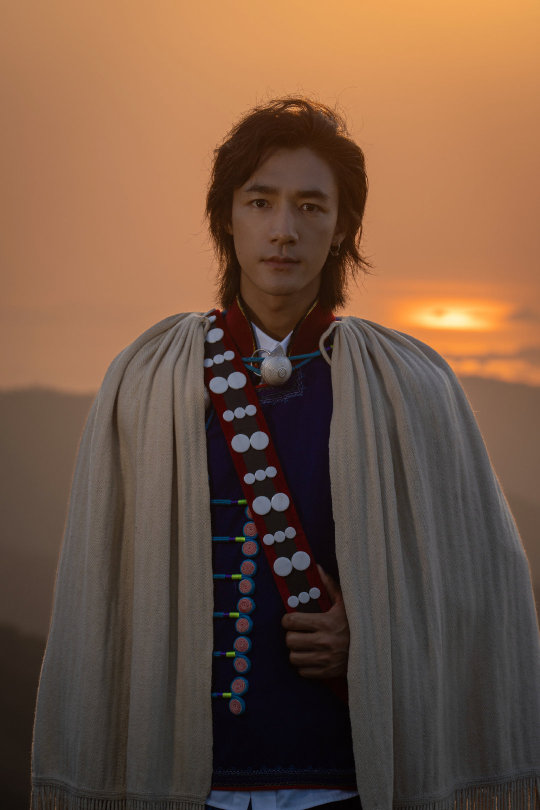


Cî Sha 此沙
Wb update 2023.11.08 (1/2)
He looks so good in Yí 彜 traditional clothing, these are perfect for the Yí People New Year!
#ci sha#jiwu zhesha#creation of the gods#the blue whisper#the longest promise#a date with the future#pledge of allegiance#new jin yong wuxia universe#forever and ever#the legend of muye#chinese actors#cdrama#cmovie#yi people#yi culture#traditional clothing#彝族#such a handsome lad!
19 notes
·
View notes
Text
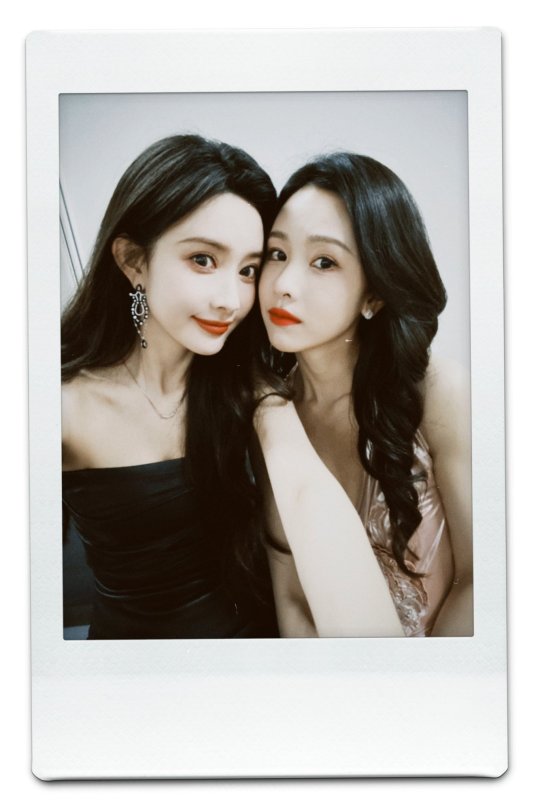
Meng Ziyi shares new snap as she reunites with Chen Duling for the The Legend of Heroes (New Jin Yong Wuxia Universe) press conference event at 2024 FILMART
3 notes
·
View notes
Text
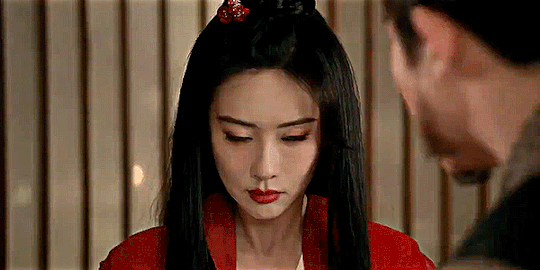






Meng ZiYi as Mei ChaoFeng | New Jin Yong Wuxia Universe: The legend of heroes (2024) | Trailer
#I am so EXITED#Meng ziyi playing one of my favorite character!!!!#I'll support all your wrongdoings honey!!!#meng ziyi#Mei chaofeng#The legend of heroes (2024)#*mgifs#The moment it'll be released I'll be insufferable lmaoo
14 notes
·
View notes
Text
Anche la Cina ha il suo Tolkien. E non è una fake news. Il nuovo Frodo Baggins si chiama Guo Jing
Il messaggio promozionale è un po’ eccessivo, fa sentire odore di ‘sola’, o, come si dice oggi, di fake news. Amazon lo lancia come “Il Signore degli Anelli cinese”, e sul “Tolkien di Cina” ricama un po’ tutta la stampa english, compreso il Guardian (nell’articolo A hero reborn: ‘China’s Tolkien’ aims to conquer western readers). Il fatto, però, è che, fatte le debite distinzioni, non si tratta di una ‘sola’. Louis Cha Leung-yung, in arte Jin Yong, classe 1924, infatti, è il più noto autore di wuxia, cioè di romanzi storici di ‘cappa&spada’, del mondo orientale, “un autore da oltre 100 milioni di copie vendute”, come latrano le note biografiche. Babbo fatto fuori dal regime comunista di Cina, il figlio si fa grande a Hong Kong, dove, nel 1959, è tra i cofondatori del quotidiano Ming Pao. Intanto, dal 1955 (lo stesso anno in cui è pubblico per intero Il Signore degli Anelli), con “Il Libro e la Spada”, Jin Yong comincia a pubblicare un ciclo di romanzi, quindici, che si conclude con “La Spada di Yue Maiden”, nel 1973. I romanzi, prima pubblicati a puntate su quotidiano, riscuotono un successo clamoroso: Jin Yong è un pioniere del genere che il grande cinema ci farà conoscere attraverso una serie di film da La tigre e il dragone a Hero e La foresta dei pugnali volanti. In effetti, i romanzi di Jin Yong influenzano prepotentemente il mondo ‘pop’: vi si riferiscono fumetti, videogame, innumerevoli traduzioni cinematografiche e film per la tivù. Il libro più venduto – oltre un milione e mezzo di copie alla prima uscita, nel 1963 – è stato “Spada del Cielo e Dragone di Sabbia”. La trasposizione filmica più riuscita, invece, è stata Ashes of Time (1994), capolavoro di Wong Kar-wai (grande regista di In the Mood for Love e 2046), tratto da “La leggenda del Condor”. Il genio di Jin Yong? Simile, in effetti, a quello di Tolkien. Anche lo scrittore cinese, infatti, sfrutta la cornice del ‘genere’ – il romanzo storico e d’azione – per costruire romanzi complessi, linguisticamente arditi, perfino eruditi (i riferimenti al taoismo e alle pratiche dell’esoterismo taoista sono innumerevoli e approfonditi). Tradotto in tutto il mondo orientale e in mezzo mondo occidentale (in Francia, dove è cavaliere della Légion d’honneur e ‘Commendatore delle arti e delle lettere’, e nel mondo anglofono, dove ha la medaglia dell’Order of the British Empire), è pressoché ignoto al grande pubblico europeo (in Italia siamo quattro passi di valzer dietro a tutti: l’editore Pisani ha pubblicato, dieci anni fa, Volpe volante della montagna innevata). Dopo una serie di sporadiche e parziali traduzioni (per la Oxford University Press), infatti, Madama Albione fa sul serio: MacLehose Press ha in cantiere la pubblicazione della saga in dodici tomi Legends of the Condor Heroes. Si comincia, a febbraio del 2018, con A Hero Born (pp.464, £13.99). Abstract: “Cina. Anno 1200. L’impero Song è stato sconfitto, a nord, dall’avanzata di Jurchen. A sud, l’impero è al collasso e la popolazione infuria. Ora spetta ai patrioti solitari, addestrati nelle arti marziali, salvare la Cina. La stampa non ha dubbi, “Guo Jing, giovane soldato tra le fila dell’esercito invasore e figlio di un guerriero assassinato, ci diventerà familiare tanto quanto Frodo Baggins”. Dalla Cina con furore (letterario).
L'articolo Anche la Cina ha il suo Tolkien. E non è una fake news. Il nuovo Frodo Baggins si chiama Guo Jing proviene da Pangea.
from pangea.news http://ift.tt/2k5pos1
0 notes
Text




Peter Ho for The Legend of Heroes (New Jin Yong Wuxia Universe) press conference event at 2024 FILMART
0 notes